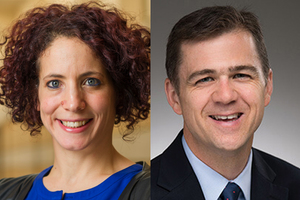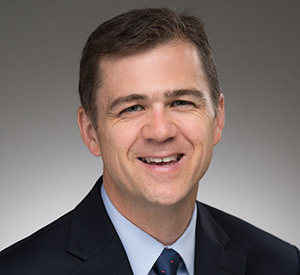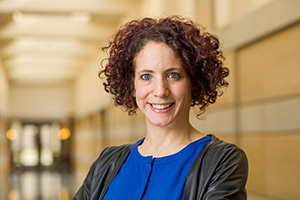
University of Notre Dame professors Atalia Omer, associate professor of religion, conflict and peace studies, and David Campbell, Packey J. Dee Professor of American Democracy, are two of 35 nationwide recipients of 2017 Andrew Carnegie fellowships, the Carnegie Corporation of New York announced Wednesday (April 26).
Each Carnegie fellow will receive up to $200,000 toward the funding of significant research and writing in the social sciences and humanities—the most generous stipend of its kind.
The program recognizes an exceptional group of both established and emerging scholars, journalists and authors with the goal of strengthening U.S. democracy, driving technological and cultural creativity, exploring global connections and global ruptures, and improving both natural and human environments.
“The health of our democracy depends on an informed citizenry, and our universities, academies and academic associations play an essential role in replenishing critical information and providing knowledge through scholarship,” said Vartan Gregorian, president of Carnegie Corporation of New York. “The Andrew Carnegie Fellows Program is designed to support scholarship that brings fresh perspectives from the social sciences and humanities to the social, political and economic problems facing the United States and the world today.”
Political Implications of the Rise of Secularism
 David Campbell
David Campbell
Campbell—current chair of the Department of Political Science and co-author of “American Grace: How Religion Divides and Unites Us” with Robert Putnam—will use this fellowship to spend a year studying the growth of secularism and what it means to American politics.
The number of Americans who describe themselves as nonreligious, dubbed the “nones” by political scientists, has grown from about 5 percent in 1990 to about 23 percent, Campbell said. If they were a denomination, they would be one of the largest in the country, outnumbering Southern Baptists.
People are increasingly leaving organized religion, Campbell said — particularly Catholicism and mainline Protestant denominations — in part due to an often toxic and polarized political environment.
“A lot of people are pulling away from religion because they see religion as tied up with politics,” he said. “They don’t want to be thought of as part of that group.”
Campbell believes some entrepreneurial politician will figure out how to speak to this group and essentially endow them with an identity. He said that’s what happened 40 years ago with evangelical Christians, though some political scientists initially dismissed that demographic as a temporary phenomenon that would quickly disappear.
“Religion has now become deeply entrenched in our politics. We have a hunch that something similar may happen with the secular population,” Campbell said.
How Religion Matters to Peacebuilding
 Atalia Omer
Atalia Omer
For her Carnegie project, “Religion, Gender, and the Practice of Peacebuilding and Development in Mindanao and Malindi,” Omer will conduct research on the role of intra- and inter-religious activities in development and peacebuilding initiatives in Mindanao, the Philippines, and Malindi, Kenya.
“The question is not whether religion matters, but how it matters,” Omer said. “Religious actors, networks and institutions from multiple faith traditions play a vital role in resolving conflict and building peace.”
Omer’s research will focus on two inter-religious programs facilitated by Catholic Relief Services (CRS) together with local partners. In Mindanao, where land disputes among Muslims, Christians and indigenous groups have fueled violent conflict for decades, CRS trains religious and municipal leaders in conflict resolution skills and reconciliation practices.
In Malindi, part of Kenya’s coastal region, CRS brings together religious and government leaders to intervene against child marriages. Omer will examine these programs from a sociological perspective, focusing on how they affect women and girls.
Omer is a core faculty member of the Kroc Institute for International Peace Studies within Notre Dame’s new Keough School of Global Affairs.
Carnegie Corporation of New York was established in 1911 by Andrew Carnegie to promote the advancement and diffusion of knowledge and understanding. In keeping with this mandate, the corporation’s work focuses on the issues that Carnegie considered of paramount importance: international peace, education and knowledge, and a strong democracy.
Contact: Amanda Skofstad, assistant director of media relations, 574-631-4313, skofstad@nd.edu
Originally published by at news.nd.edu on April 26, 2017.